You need guidelines to find out the latest best practice and recommendations for treatments and therapies. Resources to help you to find guidelines:
NICE
NICE
is the National Institute for Health and Care Excellence. It publishes a wide
range of evidence-based, UK-based guidelines.
Finding a NICE guideline
You
can view guidelines by condition, health and social care delivery, health
protection, lifestyle and wellbeing, population group or healthcare setting.
You
can also view all guidelines and then filter by your keyword search term.
Viewing a NICE guideline
The
guideline page includes a web page version of the guideline as well as a link
to download the PDF version.
You
can also see related content to the topic.
- Tools and Resources – to help you to put the guideline into practice
- Information for the Public – this may be useful for creating patient information
- Evidence – review of supporting evidence
- History - documents created during development
Clinical Key
Clinical
Key is a clinical specialist search engine. It includes full-text content from
a wide range of publishers. Browse the guidelines by clicking the guidelines
box on the home page.
Use
the filter options to focus the list of guidelines. You can filter by:
- Specialty
- Authoring organization
- Title
Clinical
Key is available to UHNM members of staff. Log in with your NHS OpenAthens
username.
TRIP
TRIP is a specialist
healthcare search engine. You can search across a wide range of content for
free. Focus your results by using the filters.
The TRIP
filters include different levels of evidence such as guidelines. In this
example I have filtered the results by UK guidelines.
Anyone
can search TRIP without a login. NHS users can log in with their NHS OpenAthens
username to get more content. You may need to log in to the individual
resources to access full-text, if available.
Get help
- Go to our Online Guides and Support section for help using our popular
resources
- Complete a tutorial to improve your information skills
Get in touch
For more
help using Health Library resources or finding information:
- Attend a webinar or training course
- Book a 1-to-1 session with the training team
- Contact the eresources librarian for help accessing online resources
- Request a literature search


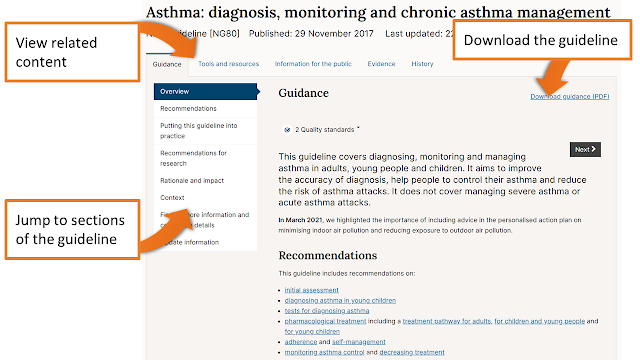
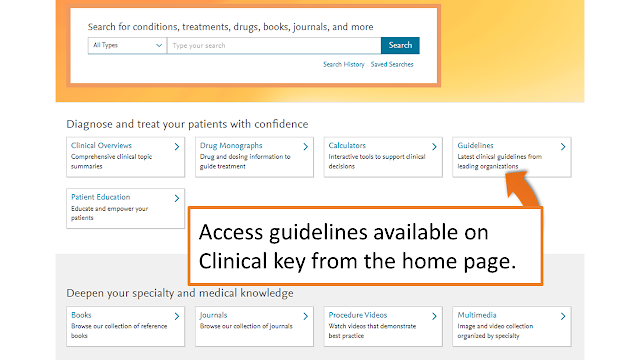
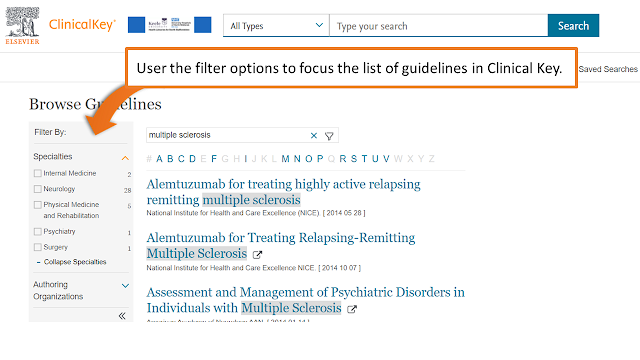
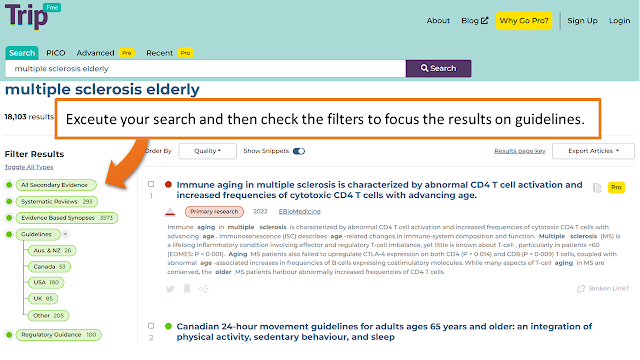
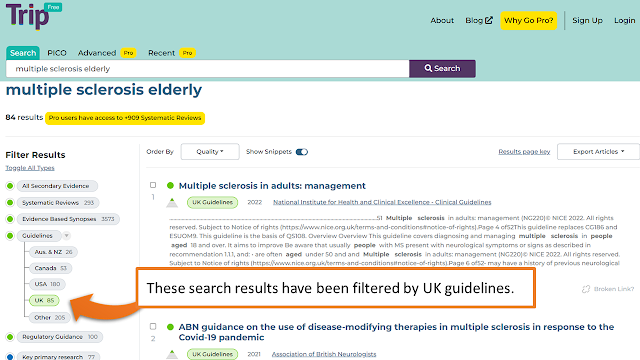
Comments
Post a Comment